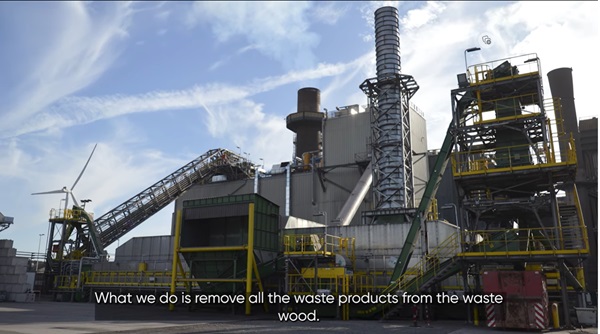
On Wednesday 20 December 2023, ArcelorMittal announced that ArcelorMittal Belgium has commissioned its €35 million Torero plant, which converts waste wood into bio-coal for use in the blast furnace at its Gent steelmaking site in Belgium, in a first-of-its-kind in the European steel industry.
The first bio-coal made in the Torero plant, through a process known as torrefaction, was successfully used in a blast furnace in Gent, on Monday 18 December. The project will reduce annual carbon emissions from the plant by 112,500 tonnes, by reducing the use of fossil coal in the blast furnace. The Torero industrial-scale demonstration plant will convert 88,000 tonnes of waste wood into 37,500 tonnes of bio-coal annually.
The use of bio-coal in the blast furnace process will result in the production of bio-gas, which will be captured and transformed into ethanol by ArcelorMittal Gent’s Steelanol facility, Europe’s first carbon capture and utilisation (CCU) project. Industrial production of ethanol began at the Steelanol plant last month, a significant step in the journey to the full commissioning of the facility. The ethanol can then be used as a building block to produce a variety of chemical products including transport fuels, paints, plastics, clothing and even cosmetic perfume, hence helping to support the decarbonisation efforts of the chemical sector.
The Torero project is supported by European funding from the European Union’s Horizon 2020 research and Innovation Framework Programme. The project consortium consists of the full value chain:
- Industry: ArcelorMittal
- Expert research organisations: Joanneum Research, University of Graz and Chalmers Technical University
- Developer of the carbonisation process technology: Perpetual Next (formerly TorrCoal)
The construction phase of the project, which began in 2018, created 70 external employee jobs. The operation of the Torero plant will lead to 16 new permanent direct jobs at ArcelorMittal Belgium.
ArcelorMittal Europe has an ambition to reduce CO2 emissions by 35% by 2030, and an ambition to reach carbon neutrality by 2050.








